Venue
Indian Institute Of Technology Roorkee, Roorkee, Uttarakhand, 247667
About the Workshop
SERB Sponsored High-End Workshop (KARYASHALA) on “Artificial Intelligence for Human Brain Computer Interaction” The Indian Institute of Technology Roorkee, Department of Electronics and Communication Engineering is organizing a workshop titled “Artificial Intelligence for Human Brain Computer Interaction: Innovations in Machine Learning and Signal Processing for emergence of Health 5.0.” The workshop is scheduled to take place from March 18, 2024 and is sponsored by the Government of India’s SCIENCE & ENGINEERING RESEARCH BOARD (SERB). This event is part of the Accelerate Vigyan Scheme, which seeks to boost high-end scientific research and cultivate a scientific workforce that can pursue research careers and knowledge-based economies. KARYASHALA is an initiative aimed at enhancing the research productivity of promising Postgraduate and Ph.D. students from universities and colleges by conducting high-end workshops on specific themes. This workshop would feature renowned experts across India and globally in the HCI (Human Computer Interaction) domain. Also, industry experts in healthcare and key policy makers have been invited as speakers at this workshop. The objective is to train learners in the core tools of Artificial Intelligence for Human Brain Computer Interaction. This workshop will also help chalk-out a clear pathway for development and deployment of these technologies in the Indian context.
Organizers
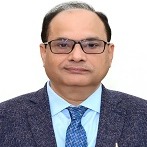
Prof. K. K. Pant
Patron, Director, IIT Roorkee
Prof. K. K. Pant is currently the Director at IIT Roorkee (on deputation), before he served as the Dean Faculty at IIT Delhi. He is also the Petrotech (FIPI) Chair Professor, Adjunct faculty at University of Saskatchewan in Canada, Joint Faculty at CRDT IIT Delhi and Honorary Faculty at University of Queensland in Australia. He is among the leading academicians in India who is working on cutting edge and futuristic technologies of national and international importance like coal to methanol conversion, e-waste and plastic management, hydrogen generation, CO2 capture and conversion, biomass valorization, etc., using catalysis and reaction engineering. Recently, his name featured in the top 2% scientists worldwide in the field of chemical engineering in a study by Oxford University. Prof. Pant’s academic and industrial research experience spans over 30 years with 220+ publications having 11768 citations (h-index: 57, i10-index: 157) and numerous patents. He has successfully completed over 50 high impact projects and consultancies valued more than 1.02 Billion Indian Rupees from premier companies and government organizations. Prof. Pant has also been conferred twice with the prestigious Gandhian Young Technological Innovation (GYTI) award, besides several other honors such as CHEMCON distinguished speaker award, Herdilia Award by Indian Institute of Chemical Engineers, thrice with Dr. A V Rama Rao award for best Ph.D. supervision, Dr. S. S. Deshpande Award, etc. He has also been conferred fellowships from several national and international academies such as Royal Society of Chemistry, London (FRSC, London), National Academy of Science India, (NASI), Indian National Academy of Engineering (INAE), Biotech Research Society of India (BRSI), Institution of Engineers India (FIE(I)), Indian Institute of Chemical Engineers (FIIChE), Fellow of Indian Desalination Association (InDA), etc. which are testimonial of his expertise in basic research and remarkable position in the scientific community. Prof. Pant is among the Chairman and expert member in several national and international scientific committees such as SERB, DST, CSIR, MNRE, CPCB, Ministry of Coal, Ministry of Electronics, Ministry of New and Renewable Energy, etc.
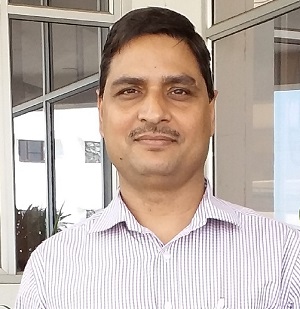
Prof. N. P. Pathak
Chairman, HOD, ECE Department, IIT Roorkee
Nagendra Prasad Pathak received the B. Tech. in Electronics & Telecommunication Engineering and M. Tech. in Electronics Engineering from University of Allahabad in 1996 and 1998 respectively. He obtained his Ph.D. degree in the area of Millimeter-wave Integrated Circuits from Indian Institute of Technology Delhi in 2005. He joined ‘NRD Super Broadband Research Centre, Tohoku Institute of Technology, Sendai, Japan’, as research fellow in 2005. Since 2006, he has been with the Department of Electronics & Communication Engineering, Indian Institute of Technology Roorkee, where he is currently a Professor. Dr Pathak is Research Advisor in Nan Yang Academy of Sciences (NAS), Singapore (2018) and invited by Indian National Academy of Engineering (INAE) for delivering invited talk in 9th National Frontiers of Engineering Symposium for Young Indian Engineers held at Jodhpur (June 2015). He is recipient of DST Fast Track Research Grant for Young Scientists (2007), IETE India National Research Fellowship in the area of ’Microwave and Radar Engineering’ (2004, 2005) and DRDO, Government of India, ’Research Fellowship’ in the area of ’Integrated Optics’ in the year of 1999. He currently serves as Associate Editor for IEEE Access and Advanced Electromagnetics.
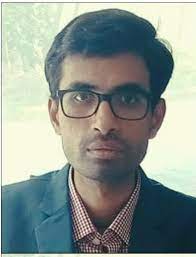
Dr. Tharun Kumar Reddy
Convener, ECE Department, IIT Roorkee
Tharun Kumar Reddy received the B.Tech (in 2013), joint M.Tech and Phd degrees (in 2020) in electrical engineering from the Indian Institute of Technology Kanpur, Kanpur, India, where he is currently working as an Assistant Professor in ECE Department at IIT Roorkee. His research interests include deep learning for brain–computer interfaces, multimodal biosignal processing, machine learning, and biomedical signal processing. He contributed his research work in peer-reviewed journals, conferences, and in filing patents.
Speakers
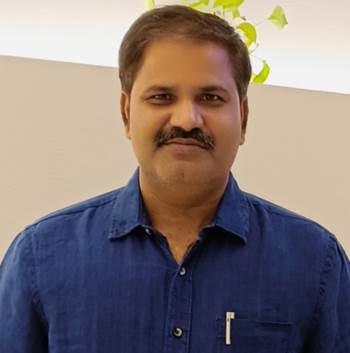
Prof. Ram Bilas Pachori
Department of Electrical Engineering, IIT Indore
Ram Bilas Pachori received the B.E. degree with honours in Electronics and Communication Engineering from Rajiv Gandhi Technological University, Bhopal, India, in 2001, the M.Tech. and Ph.D. degrees in Electrical Engineering from IIT Kanpur, India, in 2003 and 2008, respectively.
Before joining the IIT Indore, India, he was a Post-Doctoral Fellow at the Charles Delaunay Institute,
University of Technology of Troyes, France (2007-2008) and an Assistant Professor at the Communication
Research Center, International Institute of Information Technology, Hyderabad, India (2008-2009). He was an
Assistant Professor (2009-2013) and an Associate Professor (2013-2017) at the Department of Electrical
Engineering, IIT Indore, where he has been a Professor, since 2017. He is also associated with the Center for
Advanced Electronics, IIT Indore. He was a Visiting Professor at the Department of Computer Engineering,
Modeling, Electronics and Systems Engineering, University of Calabria, Rende, Italy, in July 2023; Faculty of
Information & Communication Technology, University of Malta, Malta, from June 2023 to July 2023; Neural
Dynamics of Visual Cognition Lab, Free University of Berlin, Germany, from July 2022 to September 2022; School
of Medicine, Faculty of Health and Medical Sciences, Taylor’s University, Malaysia, from 2018 to 2019.
Previously, he was a Visiting Scholar at the Intelligent Systems Research Center, Ulster University, Londonderry,UK, in December 2014.
His research interests include signal and image processing, biomedical signal processing, non-stationary
signal processing, speech signal processing, brain-computer interface, machine learning, and artificial intelligence and the internet of things in healthcare. He is an Associate Editor of Electronics Letters, IEEE Transactions on Neural Systems and Rehabilitation Engineering, Computers and Electrical Engineering, and Biomedical Signal Processing and Control, and an Editor of IETE Technical Review journal. He is a Fellow of IETE, IEI, and IET. He has 323 publications, which include journal articles (200), conference papers (86), books (10), and book chapters (27). He has also eight patents, including one Australian patent (granted) and seven Indian patents (published). His publications have been cited approximately 16,000 times with h-index of 68 according to Google Scholar.
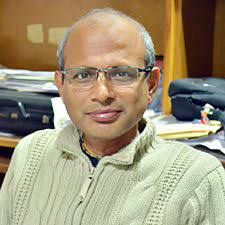
Prof. Laxmidhar Behera
Director, IIT Mandi
Prof Laxmidhar Behera is currently working as the Director, IIT Mandi on deputation from IIT Kanpur. He served as TCS affiliate faculty during 2021-22. During his 27 years of research and teaching career, Prof Laxmidhar Behera has contributed significantly to areas such as Intelligent Systems and Control, Vision based Robotics, Warehouse automation, Brain-Computer-Interface and Drone Technology. His work has a unique blend of theory and experiments. He has established industrial collaboration with TCS, Renault Nissan, and ADNOC, Abu Dhabi, BEL Bangalore while making significant technological development in the areas such robotics-based ware-house automation, vision and drone guided driver assistance system, and drone guided pipeline inspection systems. His team secured 3rd position in the Amazon Robotics Challenge 2017 among top 16 teams across the globe and 4th position in the stow-cum-pick event. He has supervised 24 PhD students to completion and currently supervises 14 PhD students. Besides, he has supervised more than 70 masters’ dissertations. He has published three graduate level text books, 110 peer reviewed journal papers, 208 papers in conference proceedings and 17 book chapters.
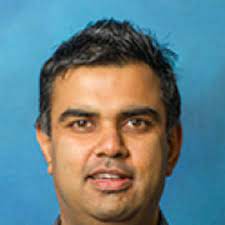
Dr. Amit Sethi
Department of Occupational Therapy, University of Pittsburgh
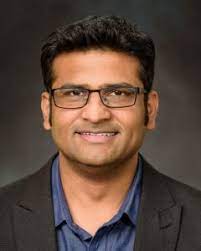
Dr. Ramana Vinjumuri
University of Maryland Baltimore County
Ramana Vinjamuri, PhD is an Associate Professor in the Department of Computer Science and Electrical Engineering (CSEE) at UMBC. He is the Director of Sensorimotor Control Laboratory or Vinjamuri Lab that houses 4 PhD students, 6 MS students and 6 UG students. He received his PhD in 2008 and a postdoc (2008-2012) in the field of Brain Computer Interfaces (BCI) from the University of Pittsburgh. He received the Mary E Switzer Merit Fellowship from NIDILRR in 2010. He received the NSF CAREER Award in 2019. He received a supplement to this award in 2022 to explore commercialization and collaboration of resultant technologies in global markets in Southeast Asia. He received the NSF Industry University Cooperative Research Center (IUCRC) Planning grant in 2020. He is well connected with industry in BCI and is in the process of establishing a neurotechnology center called BRAIN at UMBC. To this end, he held a successful BRAIN industry planning meeting in Sep 2022. This improved the industry network and potential commercial partners for PneumaTM. In June 2022 the PI received an SBIR award from NIDILRR to partner with Delsys, Inc on another technology that started as a publication in Vinjamuri Lab strengthening relations with this potential commercial partner. His other notable commercialization and innovation grants are from the United States India Science and Technology Endowment Fund (USISTEF) and the New Jersey Health Foundation (NJHF). His team has developed and tested a benchtop prototype system that can record EEG and EDA activity under simulated stress and no stress conditions. In July 2022, the PI (Vinjamuri) was invited as a visiting scientist at NIDA collaborating on ecological momentary assessment (EMA) to improve stress detection. In December 2022, the PI was recognized as a Technologist in the 2023 Maryland New Venture Fellowship program (similar to I-Corps node program). He worked with business analysts and mentors to conduct preliminary market analysis and customer discovery in Spring 2023, prior to winning the pitch competition in May 2023 at the conclusion of the fellowship.
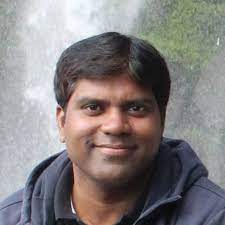
Dr. Pyari Mohan Pradhan
Department of Electronics & Communication Engineering, IIT Roorkee
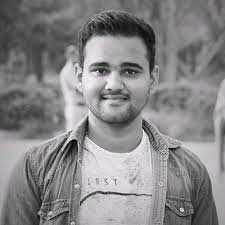
Deepak Khatri
Upside down labs
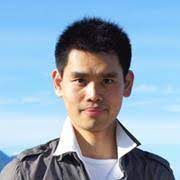
YK Wang
School of Computer Science, University of Technology, Sydney
He received the B.S. degree in mathematics education from National Taichung University of Education, Taichung, Taiwan, in 2006, and the M.S. degree in biomedical engineering from National Chiao Tung University, Hsinchu Taiwan, in 2009. He received my PhD degree from the Department of Computer Science and Engineering, National Chiao Tung University, Hsinchu, Taiwan, in 2015. After one year military service, He have been an active researcher at University of Technology Sydney (UTS) since December 2016. He is currently a full-time senior lecturer in the School of Computer Science, Faculty of Engineering and Information Technology at UTS since July 2020.
In the past years, He is working on dynamic cognitive science and neuro-engineering with Prof. Chin-Teng Lin in Brain Research Center (BRC), National Chiao Tung University (NCTU) and Prof. Tzyy-Ping Jung in Swartz Center for Computational Neuroscience (SCCN), University of California, San Diego (UCSD). To achieve better performance of EEG-based application, He visited Human Research and Engineering Directorate in US Army Research Laboratory (ARL) and SCCN in UCSD in 2013 and 2014, respectively. The current interests of his research are to integrate the computational intelligence (CI) with neuroscience knowledge for addressing cognitive functions, discovering the relationships between brain dynamics and cognitive variables, and diagnosing neurological diseases.

CT Lin
School of Computer Science, University of Technology, Sydney
Distinguished Professor Chin-Teng Lin is a leading researcher in artificial intelligence (AI) and brain computer interfaces (BCI), developing systems of brain information processing and communication with machines. Lin studies the brain and behaviours, the physiological changes that occur when human cognitive functions are working, and ways to combine human physiological information with artificial intelligence to develop monitoring and feedback systems.
He wants to improve the flow of information from humans to robots, so humans can make better decisions and respond to complex, stressful situations, and so that robots can better understand the status and intention of humans to augment human-machine cooperation. This is an emerging trend identified in the fifth Industrial Revolution to deliver a common good for humanity.
Lin was the inventor of fuzzy neural networks (FNN) in 1992, introducing neural-network learning into fuzzy systems and incorporating human-like reasoning into neural networks. Since then, there have been about 500,000 articles about FNN published online. Lin has since developed a series of FNN models with various learning capabilities suitable for different learning environments, as well as targets on multi-agent reinforcement learning for multi-drone coordination and cybersecurity.
Lin joined UTS in 2016 as Co-Director of the Australian AI Institute (AAII) to advance AI and BCI. He also secured an industry funding to establish the GrapheneX-UTS Human-centric AI (HAI) Centre in 2023.
A highly published researcher in the fields of machine-intelligent systems and brain computer interface, Lin is also the founding director of the Computational Intelligence and Brain Computer Interface Lab at the Australian AI Institute, at UTS. The Lab is developing mobile sensing technology to measure brain activity using non-invasive methods, to assess human cognitive states.
Lin led a large-scale 10-year project ($10 million) on Cognition and Neuroergonomics (2010-20) with the US Army Research Lab. The project explored advanced BCI technologies by studying the effects of vehicle motion and cognitive fatigue, and developing wearable EEG devices.
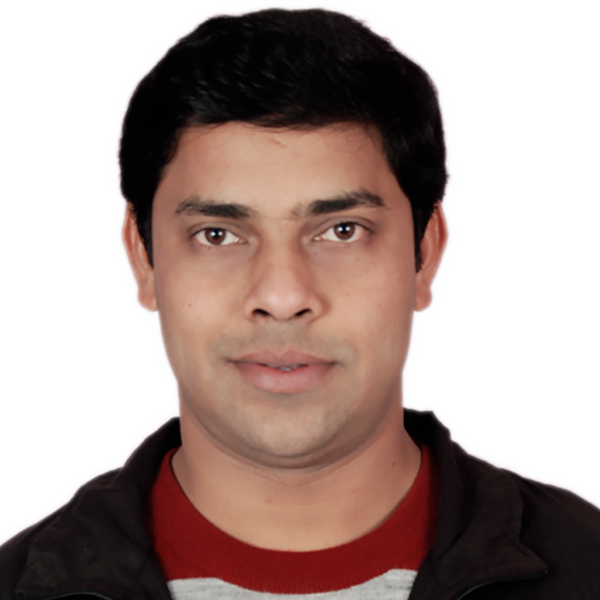
Dr. Tapan K Gandhi
Department of Electrical Engineering, IIT Delhi
Dr Tapan Kumar Gandhi is working as Professor in the Dept. of Electrical Engineering, Cadence Chair Professor of AI and Automation, Joint Faculty in School of AI, IIT Delhi and adjunct faculty in the school of AI and data science, IIT Jodhpur. He is also research affiliate to MIT, USA. He received his Ph.D. fellowship from (MIT, USA) and obtained his Ph.D. in Biomedical Engineering from IIT Delhi.
Following his Ph.D., he has spent couple of years as postdoctoral research associate at MIT, USA. Dr Gandhi was also awarded an INSPIRE Faculty in the engineering & technology category of the Department of Science & Technology, Govt. of India. During this 5 years tenure, he is awarded as the excellent INSPIRE Faculty by DST, Govt. of India. His research expertise spans from Computational Neuroscience, Brain imaging, Assistive Technology, Bio-medical Instrumentation, Machine Learning, Cognitive Computing to Artificial intelligence.
He has published papers in top ranking journals like Nature, PNAS, Current Biology, PloS Biology, IEEE Transactions. He has more than 200 publications in International journals and conference proceedings. He is PI & Co-PI of multi Crore funded projects from Industry as well as Govt. of India organizations.
He has received many awards in India (including one from Ex-President of India, Dr Kalam) and abroad for his academic excellence and ground breaking research. His research work is not only published in top-notch journals but also appeared in many popular presses including TIME magazine, the Boston Globe, the New York Times, MIT News, Harvard News, Wall street Journal and also in the SCIENCE Magazine. Dr Gandhi’s work was selected as cover page in Science Magazine in 2015. He has delivered many invited talks in National and International Universities like MGH, Harvard University, Yale University, Copenhagen University, University of Groningen. He is one of the international member in European Union joint projects on Vision Sciences and collaborator in many international projects.
Registration
- If you are interested to participate in the workshop, please fill out the form here.
- If you belong to industry/start-up still you can participate in this workshop and also there are oppurtunities to ADVERTISE your products at a stall during the event. More details will be shared as one fills the above form.
- 25 selected Participants will be communicated about further process.
- Food and Accomodation (free of cost) will be provided to all the selected participants (Both academia and industry).
- Travel allowance will be provided for the selected participants based on the SERB norms (Upto 3AC).
| Category | Fee |
| Shortlisted Canditates | Rs. 2,500 |
| IITR Students | Rs. 2,500 |
| Self-sponsored & Industry Professionals | Rs. 12,000 |
Important Dates
- Last date of Registration: 2 Mar 2024
- Notification for selected Canditates: 2 Mar 2024
- Last date of payment: 3 Mar 2024
Contact
For inquiries and more information, please contact:
- Karyashala Organising team: serbcourse@gmail.com
